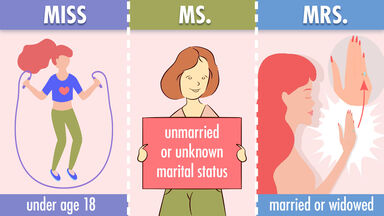
The diphthongs "ão," "ao," and "au" all make an "ow" sound, like the "ow" in the English word "cow." However, "ão" is more nasal.In European Portuguese, diphthongs in which one vowel has a tilde ( ˜ ) over it are pronounced nasally. If you see 2 vowels that are not a diphthong, each of them is pronounced separately. A diphthong occurs when the sounds of 2 vowels that are next to each other in a word are blended together to make a different sound. At the beginning of a word, it's pronounced like the "h" in the English word "heat."Ĭombine vowel sounds together to create diphthongs. The Brazilian Portuguese "r" is pronounced like the English "r" when it occurs inside words.
 An "x" usually sounds like the "sh" in the English word "shot." However, it can make a "ks" sound in loan words, such as "taxi.". Brazilians tend to pronounce a "w" like a "v.". Then, it makes a "z" sound, like the "s" in the English word "rose." An "s" is pronounced like the "s" in the English word "satisfaction" unless it is between 2 vowels. A "j" always makes a soft "zh" sound, like the "s" in the English word "measure.". Similarly, a "g" makes a hard sound, like the "g" in the English word "got," if it's followed by an "a," "o," or "u." When followed by an "e" or an "i," it makes a soft "zh" sound, like the "s" in the English word "pleasure.". The letter "c" is pronounced like the "s" in the English word "safe" if it occurs before an "e" or an "i." If it is followed by an "a," "o," or "u," it's pronounced like the "c" in the English word "cat," unless it has a cedilla (ç). However, there are some exceptions: X Research source Brazilian Portuguese uses the same alphabet as English, and most of the consonants are pronounced the same. Pronounce most consonants the way you would in English. The letter "a" also makes an "uh" sound, similar to the "uh" in the English word "cut." This pronunciation only occurs when the "a" is in the last syllable of the word and is unstressed. The letter "a" makes an "ah" sound, similar to the "a" in the English word "father.". The letter "o" also makes an "ah" sound, similar to the "o" in the English word "cot.". The letter "o" makes an "oh" sound, similar to the "o" in the English word "vote.". The letter "e" also makes an "ay" sound, similar to the "ay" in the English word "bay.". The letter "e" makes an "eh" sound, similar to the "e" in the English word "bet.". The letter "u" makes an "oo" sound, similar to the "oo" in the English word "boot.". The letter "i" makes an "ee" sound, similar to the "ee" in the English word "beet.". The 8 basic vowel sounds are as follows: X Research source
An "x" usually sounds like the "sh" in the English word "shot." However, it can make a "ks" sound in loan words, such as "taxi.". Brazilians tend to pronounce a "w" like a "v.". Then, it makes a "z" sound, like the "s" in the English word "rose." An "s" is pronounced like the "s" in the English word "satisfaction" unless it is between 2 vowels. A "j" always makes a soft "zh" sound, like the "s" in the English word "measure.". Similarly, a "g" makes a hard sound, like the "g" in the English word "got," if it's followed by an "a," "o," or "u." When followed by an "e" or an "i," it makes a soft "zh" sound, like the "s" in the English word "pleasure.". The letter "c" is pronounced like the "s" in the English word "safe" if it occurs before an "e" or an "i." If it is followed by an "a," "o," or "u," it's pronounced like the "c" in the English word "cat," unless it has a cedilla (ç). However, there are some exceptions: X Research source Brazilian Portuguese uses the same alphabet as English, and most of the consonants are pronounced the same. Pronounce most consonants the way you would in English. The letter "a" also makes an "uh" sound, similar to the "uh" in the English word "cut." This pronunciation only occurs when the "a" is in the last syllable of the word and is unstressed. The letter "a" makes an "ah" sound, similar to the "a" in the English word "father.". The letter "o" also makes an "ah" sound, similar to the "o" in the English word "cot.". The letter "o" makes an "oh" sound, similar to the "o" in the English word "vote.". The letter "e" also makes an "ay" sound, similar to the "ay" in the English word "bay.". The letter "e" makes an "eh" sound, similar to the "e" in the English word "bet.". The letter "u" makes an "oo" sound, similar to the "oo" in the English word "boot.". The letter "i" makes an "ee" sound, similar to the "ee" in the English word "beet.". The 8 basic vowel sounds are as follows: X Research source 
Many of these sounds are familiar to English speakers. Brazilian Portuguese has 5 vowels that produce 8 basic vowel sounds.






 0 kommentar(er)
0 kommentar(er)
